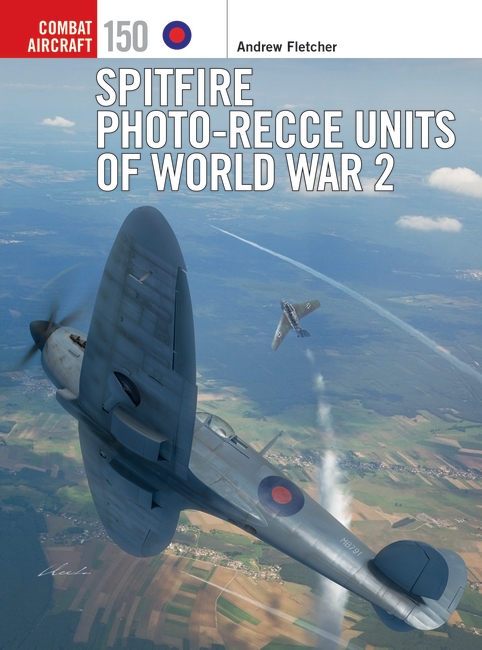
Welcome to Machine of the Month! Each month we'll be exploring a famous plane, ship or tank through an extract, blog post, fact file and artwork.
To mark the Battle of Britain, this month we're featuring the Spitfire, one of the most iconic planes in aviation history. Many variants of the plane have been built over the years.
Experience the dynamic dogfighting of aerial combat during the summer of 1940 with Osprey Games' recent release in the Undaunted series - Undaunted: Battle of Britain.
In September we'll be looking at ships in our new Fleet series.
Fact File
The fame of the Supermarine Spitfire is undoubtedly helped by its looks. Designed by R. J. Mitchell, the Spitfire’s slender fuselage, long nose, and large, elliptical wing suggested the supreme aerodynamics that it indeed delivered. Yet its aesthetics were matched by its capacity to fight, and its continued development placed Britain on an equal footing with the German, Italian and Japanese air arms for the duration of World War II.
- Designed by R. J. Mitchell who tragically died in 1937 aged just 42.
- It first flew as the Type 300 on 5 March 1936.
- The Spitfire entered RAF service in 1938.
- The Spitfire’s ancestry can be traced directly to the Supermarine S 6B Schneider Trophy winner of 1931.
- Spitfires first fired their guns in anger on 6 September 1939, three days after Great Britain declared war on Germany.
- What the Spitfire gave the RAF was a combat aircraft that was able to take on the German Messerschmitt Bf 109E fighters on equal terms.
- In total during the war years, 20,351 Spitfires were produced. They saw action across all theatres of the conflict, flown by the pilots of many nations.
- The excellence of the Spitfire design meant that the aircraft soldiered on around the world for at least a decade after the end of World War II, seeing combat in conflicts such as the 1947 Indo-Pakistan War and the 1948 Arab–Israeli War, while the final RAF combat sortie was flown by a PR 19 during the Malayan Emergency in 1954.
Spitfire Mk IA Specification
- Powerplant: 1,030hp Merlin III V12 inline piston engine
- Length: 29ft 11in (9.1m)
- Height: 12ft 8in (3.8m)
- Wing span: 36ft 10in (11.2m)
- Wing area: 242ft (22.4m2)
- Empty weight: 4,517lb (2,048kg)
- Maximum take-off weight: 5,844lb (2,650kg)
- Maximum speed at 15,000ft: 346mph (556km/h)
- Range: 415 miles (667km)
- Climb: to 20,000ft (6,096m) in 7.42 min
- Service ceiling: 30,500ft (9,296m)
- Armament: 8 x .303in machine guns

Spitfire VC MH300/KW-S of Flg Off P G Louis, No 615 ‘County of Surrey’ Sqn, Dohazari, India, 16 January 1944
Flg Off Paul Louis had been credited with a half-share in the first Spitfire kill over Burma in November 1943, and he first flew MH300 on Christmas Day 1943, soon after it had been delivered. Over the next few days he scrambled several times in it, but with no contact. On 16 January he scrambled in MH300 from Dohazari with Flg Off Weggery after a Ki-46, and in a five-minute combat they succeeded in shooting it down. Louis left No 615 Sqn soon afterwards, although MH300 remained, being flown by other notable pilots including Flt Lt Kevin Gannon and Plt Off ‘Nappy' Carroll. It was written off when a tyre burst on take-off on 12 April.
Click the links below to read a blog and book extract.
Spitfire Photo-Recce Units of World War 2
Extract from Spitfire vs Bf 109: Battle of Britain


Comments
You must be logged in to comment on this post. Click here to log in.
Submit your comment